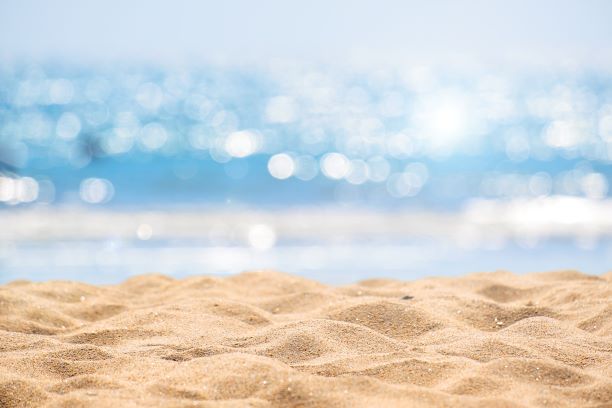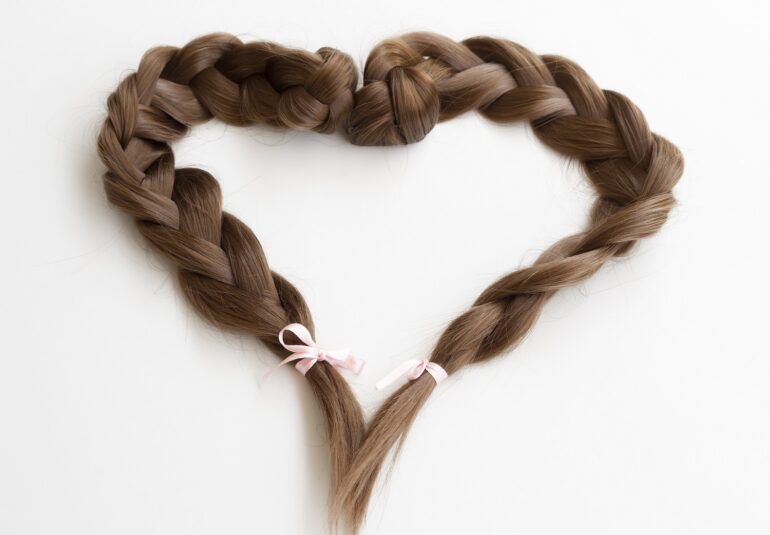
What damages hair, what are the main causes for hair loss and which ingredients can strengthen it?
Beautiful and healthy hair is a dream of every woman and man. We do everything to make it strong, shiny and beautiful using mousses, silk, keratin, waxes and conditioners, but are they really good? Our hair has a very delicate structure. It is exposed to invasive treatments such as colouring, tightly pinned up or a bad diet all our lives. And we often use the wrong cosmetics, which weigh it down.
What else is damaging our hair? Here are 4 mistakes:
- Hot water: A long hot bath or shower affects the skin as well as the hair, dehydrating and drying it. As a result, hair becomes brittle and prone to tangling and falling out. Bathing washes away the hair’s protective lipid layer, which acts as a lubricant and prevents pollution. Therefore, hair should be washed in lukewarm water.
- Frequent styling: The high temperatures of hair dryers, curling irons and straighteners have the same effect on the condition of our hair as hot water. Too much heat damages keratin, the protein that makes up 85% of our hair and provides a protective coating.
- Poor diet: Starvation and dieting, what you do not do for a slim figure, which quickly affect the condition of the hair. Putting the body into a so-called permanent state of starvation causes it to use the energy it needs to maintain vital functions rather than hair follicles. A side effect of such a restrictive diet can be weakening of the hair and hair loss. Therefore, the diet should contain products rich in vitamins A, C, E, zinc, copper, iron and B vitamins or protein or unsaturated fatty acids. You can read about the effects of diet on hair here: https://meditravel.com/diet-for-healthy-hair/
- Tightly braided hairstyles: Practical and beautiful but they do have one disadvantage, they affect the condition of your hair. The actions to which they are subjected cause excessive tension on the hair follicles, damaging them and leading to hair loss. Chignons, ponytails or braids tied tightly can lead to traction alopecia, which is caused by prolonged pressure. Continuous micro-trauma or mechanical damage can even cause permanent baldness, and the lost hair will never grow back. They can be strengthened by mesotherapy or laser therapy.
Apart from all the factors mentioned above, hair loss can also be caused by hormonal imbalance. Therefore, any changes should be consulted with a dermatologist or trichologist who will help to find the source of the problem.
What affects our hair?
Many factors affect the health of our hair, these include poor diet, hormones, menopause, medication, pregnancy, smoking, etc.
- Pregnancy: also has an effect on the condition of the hair, it only starts to fall out after the baby is born, as during pregnancy hormones are secreted to prevent hair weakening, inhibiting the telogen phase and remaining in the growth and dormant phase. Progesterone increases up to 100 times during pregnancy. Progesterone is responsible for maintaining the pregnancy and the development of the foetus, but like all progesterone has side effects, such as the sweat and sebaceous glands, which become more active and can lead to the appearance of pus on the skin and greasy hair.
- Menopause: also influences hair loss. During menopause, there is a shortage of oestrogen, which is responsible for blood circulation, and progesterone levels increase. There is an increase in androsterone levels, which can lead to male pattern baldness.
- Hormones: Hormonal changes are related to pregnancy, menopause and hyper- or hypothyroidism. An excess of androgens promotes hair loss in both sexes. The hypothalamus is responsible for regulating the level of these hormones. Stress, bad diet or toxins cause our endocrine system to produce too much male hormones, leading to hair loss. Androgens in case of women, testosterone and DHEA, are secreted by the adrenal cortex, while androstendione or DHT is secreted by the ovaries. The latter dihydrotestosterone leads to damage to the hair follicles and as a result, the hair structure is weakened.
What else affects our hair?
- Stress: When we are stressed our adrenal glands produce large amounts of androgens, which weaken the hair roots. In addition, during stress prolactin is secreted, and an increased concentration of this hormone in the blood leads to one of the causes of baldness, namely hyperprolactinemia.
- Poor diet: It is associated with a nutritional deficiency, that is, a lack of certain nutrients that are essential, such as vitamins. It is therefore very important to make up any deficiencies with the right supplements. To find out what we are lacking, a blood test should be carried out. It is important that we eat regularly and that our meals are complete.
- Medication: Taking certain medications can also cause hair loss. These include cytostatic and immunosuppressive drugs, usually associated with cancer. These types of preparations may also be prescribed by a dermatologist to treat psoriasis or pemphigus. Even antithyroid or blood-thinning drugs can cause hair damage, as can contraceptives.
- Bad care: Tightly pinned up hairstyles, teasing or squeezing with scrunchies causes hair breakage. Mechanical damage includes hair straighteners, curling irons and hot air from hair dryers.
- External factors: The changing seasons, strong sun, wind, bathing in salt or chlorinated water and even wearing a hat in winter. These factors cannot be avoided, but you can help your hair by looking after it, applying masks every day and eating a healthy diet.
Appropriate diagnosis
To combat any of the above needs, it is necessary to start by diagnosing it. A trichologist or dermatologist and the blood tests they order will help.
Here are 8 essential products that will improve the condition of your hair. Check what you should not miss in your daily diet.
- Hazelnuts, walnuts, pecans and Brazil nuts. Nuts contain selenium, which improves the condition of the scalp, and zinc, which prevents hair loss.
- Oily sea fish such as salmon and mackerel. They contain omega 3 acids, vitamin B12 and iron, which prevent the scalp from drying out and give it shine. A substitute for vegetarians is linseed oil, which also contains omega 3 acids.
- Dark green vegetables such as broccoli, green beans, spinach, cabbage or pak choi lettuce are sources of vitamin A and C, which our body uses to produce sebum, which coats the hair.
- Orange-coloured vegetables and fruits such as carrots and apricots, which are rich in vitamin A.
- Legumes and beans, which are sources of biotin.
- Chicken: it’s protein and vitamin B, which prevent hair breakage.
- Eggs, in all forms, are a source of biotin, protein and vitamin B12.
- Dairy products, which contain calcium. You can find it in milk, cheese and yoghurt.



